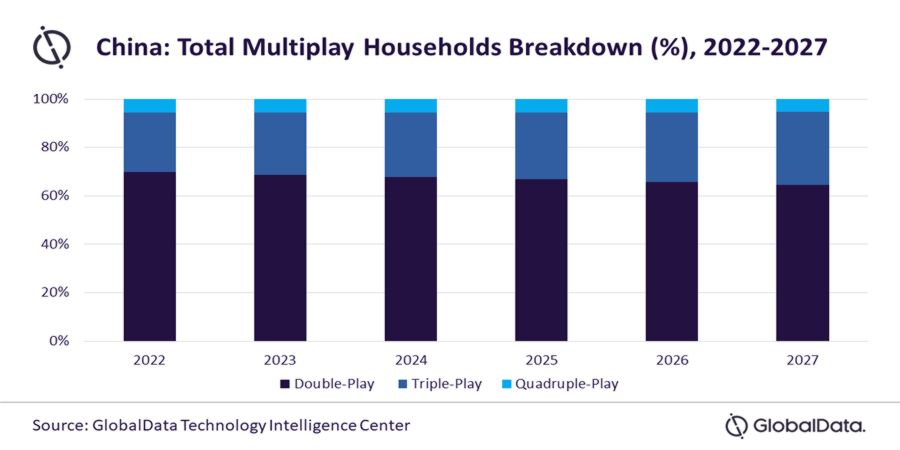The constant rise in the number of multiplay households in China and the growth in average monthly multiplay household spending are expected to drive the increase in multiplay service revenue in the country at a compound annual growth rate (CAGR) of 1.9% through 2027. The revenue is forecasted to reach $1.9 billion by the end of the forecast period, according to GlobalData, a leading data and analytics company.
GlobalData’s China Multiplay Forecast Model (October 2022) reveals that the average monthly household spend on multiplay service bundles will increase from $33.4 in 2022 to $33.8 in 2027, primarily driven by the increasing adoption of higher-value triple play and quad play service bundles.
Well-established fixed network infrastructure and relatively high fixed broadband household penetration in the country that allow telcos to promote a wide range of multiplay service bundles built around high-speed internet service are expected to power the growth in the market.
As operators package additional benefits such as unlimited Internet and access to video-on-demand platforms to enhance their bundled service offerings, the average monthly household spend on multiplay service bundles is also expected to increase, thereby driving overall revenue growth.
Sarwat Zeeshan, telecom analyst at GlobalData, noted: “While double-play services will account for the majority of multiplay households in China during the forecast period, its share of the total will decline from 64% in 2022 to 60% in 2027. On the other hand, triple play and quad play services’ share of total multiplay households will grow through 2027.
Quad-play adoption will stand to gain over the forecast period owing to growth in fixed-mobile convergence household penetration, which will increase significantly from 13% in 2022 to 34% in 2027.
All major operators in the country, including China Mobile, China Telecom, and China Unicom, are leveraging their widespread, high-speed fiber-to-the-home (FTTH) networks to accelerate multiplay service adoption and increase revenue-generating units (RGUs).





